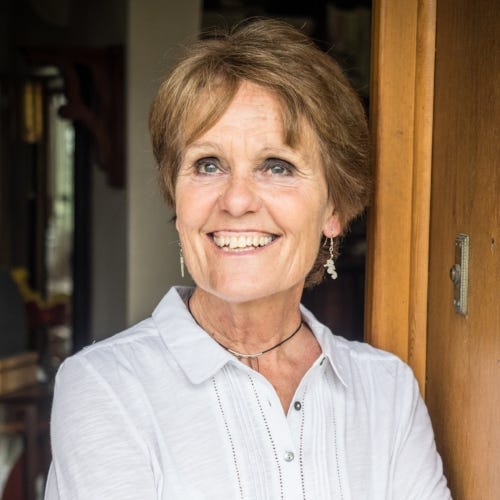Off the Spectrum
Why the science of autism has failed women and girls
“She’s out of her fucking mind,” I told Christine. “He’s having a little trouble adjusting but there’s no way he’s autistic. Absolutely not.”
It was 2012 and the head of our four-year-old’s daycare had informed us earlier that day that we’d need to find another program capable of providing better care for our son and that she believed we need to have Jack screened for autism.
The details now are fuzzy to me but yes, it turned out that Jack is autistic. What’s not fuzzy to me is the horror I felt on his diagnosis. All I’d ever wanted to be was a father. But now what would that look like? Would I ever get to have the experience that other dads had? Everything I knew about autism was filtered through pop culture with films like Rain Man or Mercury Rising. I was sad and angry and disappointed and scared.
I tell you this now because I believe in keeping things real with you. Jack’s autism diagnosis scared the shit out of me. But the reality was that this was not a life altering moment. Nor was Jack (as well as my younger boy, Ben) all that special in regard to his diagnosis. It turns out that as many as 1 in 37 children are now diagnosed as being somewhere on the spectrum. And the fear I had dissipated in about 4 minutes once I snapped out of the immediate shock of Jack’s diagnosis. In fact, as I later came to appreciate, the boys’ diagnoses helped us to understand how our beautiful wonderful fellas process and express the world around them. My dudes are perfect and I swear to God there’s nothing (aside from getting a now 17 year-old Jack to wear deodorant on the regular) that I would do to change them.
What is different, though, are the rates in which girls and women have been diagnosed with autism. As Dr. Gina Rippon, who is both our guest today and emeritus professor of cognitive neuroimaging at the Aston Brain Centre, points out, the science of autism has failed to identify autism in girls and women for a number of reasons, leading in turn to failures in understanding how autistic women and girls see and shape the world around them. So in today’s conversation Gina shares with us what autism is, misconceptions of autism (including the differences in “being autistic” vs “having autism”), how autism presents across gender identities (including the trans community), the history of the science behind autism research, and the unique experience of women and girls.
Autism is something I am still learning about every day and I was filled with questions for Dr. Rippon. I hope that with today being the start of Autism Awareness Month both here in the States and in the U.K., you might also enjoy this episode and take something from it.
About our guest
Professor Gina Rippon is Professor Emeritus of Cognitive NeuroImaging at Aston University in the UK.
Her research involves the use of state-of-the-art brain imaging techniques to investigate developmental disorders such as autism, profiling different patterns of brain activity in autistic children and adults.
Her current research explores the under-recognition of autism in women and girls, especially in neuroscience research. Her new book on this topic: The Lost Girls of Autism (UK)/Off the Spectrum (US) is released in April 2025.
Get the book
Find Off the Spectrum on Amazon or wherever you purchase your books.
Podcast
Without further ado, find my conversation with Dr. Gina Rippon below on Apple Podcasts and Spotify or wherever you listen. If you like it, don’t forget to subscribe.
Hey everyone, thanks for being here. Like what you see? You can help keep the writing, the content, and the fight coming by upgrading to a paid subscription. Thanks for helping to make this happen. Big things coming soon.



